Today, the FDA is announcing revisions to the patient and provider fact sheets for the Moderna and Pfizer-BioNTech COVID-19 vaccines regarding the suggested increased risks of myocarditis and pericarditis following vaccination. For each vaccine, the Fact Sheet for Healthcare Providers Administering Vaccine has been revised to include a warning about myocarditis and pericarditis and the Fact Sheet for Recipients and Caregivers has been revised to include information about myocarditis and pericarditis. This update follows an extensive review of information and the discussion by CDC's Advisory Committee on Immunization Practices meeting on Wednesday. The data presented at this meeting reinforced the FDA's decision to revise the fact sheets and further informed the specific revisions.
The warning in the Fact Sheets for Healthcare Providers Administering Vaccines notes that reports of adverse events suggest increased risks of myocarditis and pericarditis, particularly following the second dose and with onset of symptoms within a few days after vaccination. Additionally, the Fact Sheets for Recipients and Caregivers for these vaccines note that vaccine recipients should seek medical attention right away if they have chest pain, shortness of breath, or feelings of having a fast-beating, fluttering, or pounding heart after vaccination. The FDA and CDC are monitoring the reports, collecting more information, and will follow-up to assess longer-term outcomes over several months. "The American Heart Associationrecommends all health care professionals be aware of these very rare adverse events that may be related to a COVID-19 vaccine, including myocarditis, blood clots, low platelets, or symptoms of severe inflammation. Health care professionals should strongly consider inquiring about the timing of any recent COVID vaccination among patients presenting with these conditions, as needed, in order to provide appropriate treatment quickly. As detailed in last month's AHA/ASA statement, all suspected CVST or blood clots associated with the COVID-19 vaccine should be treated initially using non-heparin anticoagulants.
Heparin products should not be administered in any dose if TTS/VITT is suspected, until appropriate testing can be done to exclude heparin-induced antibodies. In addition, health care professionals are required to report suspected vaccine-related adverse events to the Vaccine Adverse Event Reporting System, in accordance with federal regulations. The second knowledge gap is how many people have had milder forms of heart inflammation with the second shot.
Current data hinges on people who report symptoms, such as severe chest discomfort and shortness of breath and thus go to the hospital, Kim noted. And so, there is very limited data in people who have milder symptoms, as they may not seek medical help, Simon added. All patients have recovered spontaneously and within a short period, which makes milder patients less likely to self-report, de Lemos said. Varied symptom severity is not unusual in vaccines considering, based on experience with smallpox vaccine, vaccine recipients who have had an increase in myocarditis biomarkers may be still be asymptomatic, Kim noted. Human coronavirus-associated myocarditis is known, and a number of coronavirus disease 19 (COVID-19)–related myocarditis cases have been reported. The pathophysiology of COVID-19–related myocarditis is thought to be a combination of direct viral injury and cardiac damage due to the host's immune response.
COVID-19 myocarditis diagnosis should be guided by insights from previous coronavirus and other myocarditis experience. The clinical findings include changes in electrocardiogram and cardiac biomarkers, and impaired cardiac function. When cardiac magnetic resonance imaging is not feasible, cardiac computed tomographic angiography with delayed myocardial imaging may serve to exclude significant coronary artery disease and identify myocardial inflammatory patterns.
Because many COVID-19 patients have cardiovascular comorbidities, myocardial infarction should be considered. If the diagnosis remains uncertain, an endomyocardial biopsy may help identify active cardiac infection through viral genome amplification and possibly refine the treatment risks of systemic immunosuppression. Arrhythmias are not uncommon in COVID-19 patients, but the pathophysiology is still speculative. Nevertheless, clinicians should be vigilant to provide prompt monitoring and treatment. The long-term impact of COVID-19 myocarditis, including the majority of mild cases, remains unknown.
Clinicians should be aware of the risk of myocarditis and pericarditis with mRNA vaccines and those most likely to be affected. They should be alert to presentations such as acute chest pain, shortness of breath and palpitations that may be suggestive of myocarditis after vaccination, especially in adolescent or young males. Coronary events are less likely to be the source of such symptoms among younger people. "We remain confident that the benefits of vaccination far exceed the very small, rare risks.
The risks of vaccination are also far smaller than the risks of COVID-19 infection itself, including its potentially fatal consequences and the potential long-term health effects that are still revealing themselves, including myocarditis. Yes, as I have covered before for Forbes, myocarditis cases have been popping up among those who have had Covid-19. It's not completely clear yet whether the virus itself or the immune response to the virus may cause inflammation in your heart.
Knowing the answers to these questions could help shed further light on what may happen with vaccination. Of course, getting a Covid-19 mRNA vaccine is not the same as getting infected with the Covid-19 coronavirus, otherwise known as the severe acute respiratory syndrome coronavirus 2 (SARS-CoV2). The mRNA vaccines do not contain the whole virus and instead provides mRNA to your cells that your cells then use blueprints to make the spike proteins that stud the surface of the SARS-CoV2, making the virus look like a spiky massage ball.
Just as Jennifer Aniston's hair alone can't star in a reunion of the TV show Friends, the spike protein alone can't cause Covid-19. Therefore, it is highly unlikely that the risk of myocarditis after vaccination would be the same as the risk of myocarditis from Covid-19. Even greater caution should be employed for administering these vaccines to individuals who experienced myocarditis after receiving a first dose. For now, among such individuals second doses should be considered only in those with high risk of exposure to SARS-CoV-2, the virus that causes Covid-19, or high risk of complications if they develop the disease. Severity of myocarditis and pericarditis cases can vary, but "reports have increased since April, mostly in young males 16 and older, several days after vaccination, and more often after the second vaccine dose.
Following medical record reviews, the CDC and the Food and Drug Administration have confirmed 594 reports of myocarditis or pericarditis. The mRNA vaccines against COVID-19 infection have been effective in reducing the number of symptomatic cases worldwide. With widespread uptake, case series of vaccine-related myocarditis/pericarditis have been reported, particularly in adolescents and young adults. Men tend to be affected with greater frequency, and symptom onset is usually within 1 week after vaccination. On the basis of the available evidence, we highlight a clinical framework to guide providers on how to assess, investigate, diagnose, and report suspected and confirmed cases. In any patient with highly suggestive symptoms temporally related to COVID-19 mRNA vaccination, standardized workup includes serum troponin measurement and polymerase chain reaction testing for COVID-19 infection, routine additional lab work, and a 12-lead electrocardiogram.
Echocardiography is recommended as the imaging modality of choice for patients with unexplained troponin elevation and/or pathologic electrocardiogram changes. Cardiovascular specialist consultation and hospitalization should be considered on the basis of the results of standard investigations. Treatment is largely supportive, and myocarditis/pericarditis that is diagnosed according to defined clinical criteria should be reported to public health authorities in every jurisdiction. Finally, we recommend COVID-19 vaccination in all individuals in accordance with the Health Canada and National Advisory Committee on Immunization guidelines.
In patients with suspected myocarditis/pericarditis after the first dose of an mRNA vaccine, deferral of a second dose is recommended until additional reports become available. Additionally, pericarditis may be more common than myocarditis among older patients. More people may experience COVID-19 mRNA vaccines' rare heart inflammation side effects if they are deployed as boosters, experts said. This is due to myocarditis and pericarditis issues mainly observed in people who have previously received an mRNA vaccine dose. However, experts emphasized that the benefit of receiving a booster would still outweigh the risk of having these side effects. Although myocarditis and pericarditis have many virological and immunological causes, a causal link was suspected due to the immunological reaction to the mRNA COVID-19 vaccine.
Individuals are recommended to rest and refrain from heavy strenuous activities for 1 week after mRNA COVID-19 vaccination, which will be helpful during the rare occurrence of myocarditis or pericarditis. Individuals experiencing chest pain, shortness of breath, or palpitations after receiving the mRNA vaccine are advised to seek immediate medical attention. Healthcare providers should consider myocarditis and pericarditis in evaluation of acute chest pain or pressure, arrhythmias, shortness of breath or other clinically compatible symptoms after vaccination.
They should consider doing an electrocardiogram , troponins, and an echocardiogram, in consultation with a cardiologist. While cases of myocarditis and pericarditis linked to Covid vaccination are rare, they are likely underreported, the researchers said, pointing to a recent report by the CDC suggesting an incidence of about 4.8 cases of myocarditis per one million vaccinated individuals. "This study shows a similar pattern, although at higher incidence, suggesting vaccine adverse event underreporting," they wrote. Its pathophysiology likely is a combination of the direct viral insult to cardiomyocytes and the human's immune response to virally infected myocardium. Simple bedside tests such as serial ECG and cardiac biomarkers can raise suspicion of acute-onset cardiac symptoms.
Particular attention should be given to biomarkers changes or trends and not just readings obtained in isolation. Cardiac imaging techniques such as echocardiography and CMR can be used to aid diagnosis; however, distinguishing between differential diagnoses of stress-induced cardiomyopathy, sepsis-related cardiomyopathy, and acute coronary syndrome can be difficult. An invasive coronary angiogram will often be warranted, especially in older patients. The definitive diagnosis of myocarditis is obtained via EMB, and if an invasive catheterization is to be performed, concomitant EMB would add little time and no further risk of infection spread vs catheterization alone. For patients who cannot undergo CMR, contrast-enhanced cardiac CT is a swift, reproducible, precise, and reliable alternative that can be added to the sequences for high-resolution CT of the lungs to evaluate the acute respiratory distress syndrome. Initial treatment of fulminant myocarditis should follow the cardiogenic shock protocol, which includes the use of inotropes or vasopressors and mechanical ventilation.
Arrhythmias can be managed by temporary cardiac pacing or antiarrhythmic medications. Then, depending on severity, the patient may require mechanical circulatory support. Cautions must be taken for the use of the NSAIDs and QTc-prolonging drugs in COVID-19 patients because these medications might exacerbate cardiac symptoms. In their review of the Pfizer-BioNTech vaccine, regulators paid close attention to an American health care claims database, which found that the risk of the conditions in 16- and 17-year-old vaccinated boys could be as high as 1 in 5,000. The cases in the database were unconfirmed, the F.D.A. cautioned in an analysis published this week, but they were considered a reasonable estimate of the possible risk.
Even in the worst-case scenarios of post-vaccination myocarditis and pericarditis modeled by the F.D.A., the benefits of vaccination still outweighed the risks, the analysis said. A strong signal of myocarditis/pericarditis has been reported recently with mRNA COVID-19 vaccines in the United States . However, the US Advisory Committee on Immunization Practices has concluded that the benefits of mRNA COVID-19 vaccines continue to outweigh the risks of myocarditis and pericarditis even among young people.
For persons over 30 years of age, the reporting rates were 2.4 and 1.0 per million second doses, respectively, for males and females. Yes.CDC continues to recommend that everyone aged 12 years and older get vaccinated for COVID-19. COVID-19 vaccination continues to be recommended for all persons aged ≥ 12 years. Emergency Use Authorization Fact Sheets have been modified to include information about myocarditis and pericarditis after receipt of mRNA COVID-19 vaccines, including when to seek medical care, and should be provided before vaccination.
Additional patient and provider education materials have been developed to guide recognition and management. All cases of myocarditis or pericarditis after COVID-19 vaccination should be reported promptly to the Vaccine Adverse Event Reporting System . A separate analysis of data from the Vaccine Safety Datalink network of health care organizations looked at confirmed cases of myocarditis or pericarditis among people ages years within seven days after vaccination with either mRNA vaccine. Presentation of acute myocarditis is variable, ranging from subclinical disease to heart failure and patients can present with chest pain, shortness of breath, palpitations and fatigue. However, it can progress to dilated cardiomyopathy and chronic heart failure, with evidence implicating it in 12% of sudden deaths in adults aged under 40.
More data have become available since the GACVS statement of 26 May 2021, with more countries reporting myocarditis and pericarditis in individuals who received COVID-19 mRNA vaccines. The reported cases have typically occurred within days of vaccination, more commonly among younger males and more often following the second dose the of COVID-19 mRNA vaccines. Pericarditis is a condition often related to myocarditis, and involves swelling and inflammation of the pericardium, a sac-like structure with two thin layers of tissue that surround the heart to hold it in place and help it function properly.
Symptoms of pericarditis are sharp, stabbing chest pain that comes on suddenly; fever; weakness; and trouble breathing or shortness of breath. Approximately 45,000 people in the U.S. are hospitalized with pericarditis each year. "We commend the CDC's continual monitoring for adverse events related to the COVID-19 vaccines through VAERS and VSD, and the consistent meetings of ACIP's VaST Work Group, demonstrating transparent and robust attention to any and all health events possibly related to a COVID-19 vaccine.
The few cases of myocarditis that have been reported after COVID-19 vaccination are being investigated. However, myocarditis is usually the result of a viral infection, and it is yet to be determined if these cases have any correlation to receiving a COVID-19 vaccine, especially since the COVID-19 vaccines authorized in the U.S. do not contain any live virus. Recent headlines have addressed a possible connection between the COVID-19 vaccine and heart inflammation – called myocarditis and pericarditis – in young people between 16 and 30 years of age. Here, three Atrium Health physicians share what myocarditis and pericarditis are, how they affect the body, and the safety of the COVID-19 vaccine. A risk of myocarditis and pericarditis has been observed in people who have received mRNA COVID-19 vaccines in overseas studies, particularly in males under 30 years of age after the second vaccine dose. The goal of the recommendations is to reduce potential infection transmission between patients.
This communication also includes updated information on medical device adverse event reports. As the country continues to push for more people to get vaccinated against COVID-19, some remain concerned over rare cases of heart inflammation—myocarditis and pericarditis—linked to the Pfizer-BioNTech and Moderna mRNA vaccines. While some parents may be thinking twice about teen vaccination, medical experts reassure that the risk of myocarditis and pericarditis are far lower than the risks of serious illness or death from contracting COVID-19. All cases of myocarditis and pericarditis following COVID-19 mRNA vaccination should be reported to public health authorities according to local/provincial/territorial reporting guidelines.
Consider referral of the patient to a Special Immunization Clinic to discuss and advise on future COVID-19 vaccinations . People with a history of myocarditis or pericarditis unrelated to mRNA COVID-19 vaccination should consult their clinical team for individual considerations and recommendations. The National Advisory Committee on Immunization recommends deferral of the second COVID-19 vaccination for those with myocarditis/pericarditis after the first dose until more information is available . Case reports of coronavirus-related myocarditis provide a glimpse into the efficacy of some of the aforementioned treatments.
Online Table 1 summarizes 9 case reports of patients with coronavirus-related myocarditis. Zeng et al3 and Hu et al48 reported the use of corticosteroid and intravenous immunoglobulin. Therefore, it is reasonable to withhold or minimize the use of immunosuppression in SARS-CoV-2 patients, especially in the setting of a positive viral genome on EMB. Vaccinated individuals should be instructed to seek immediate medical attention if they develop symptoms indicative of myocarditis or pericarditis such as new onset and persisting chest pain, shortness of breath, or palpitations following vaccination. Myocarditis is inflammation of the middle layer of the wall of the heart muscle, and it can weaken the heart muscle and the heart's electrical system, which keeps the heart pumping regularly.
Severe myocarditis can lead to heart failure, abnormal heartbeat and sudden death. Signs and symptoms of myocarditis are chest pain, abnormal heartbeat and unexpected shortness of breath. Approximately 10 to 20 per 100,000 people are diagnosed with myocarditis in the U.S. annually, and many cases resolve on their own or with treatment, leading to a full recovery. According to a 10 June CDC presentation detailing US vaccine safety data collected through 31 May, most heart inflammation events were observed after the second dose compared with the first dose . Also, these side effects were primarily observed in younger men, particularly in the 16–39-year-old age group.
Myocarditis is an inflammation of the heart muscle and pericarditis is an inflammation of the lining that surrounds the heart. An elevated risk for myocarditis has been observed after mRNA COVID-19 vaccination, particularly in males aged years. Cases typically occurred within a few days after vaccination and more often after the second dose.
Clinical courses were generally mild and many patients had resolution of symptoms with conservative treatment. They should be alert to any acute chest pain, shortness of breath and palpitations that may be suggestive of myocarditis after vaccination, especially in adolescent or young males. An increased risk of heart inflammation has been observed in people who have received mRNA COVID-19 vaccines in overseas studies, particularly in males under 30 years of age after the second vaccine dose. After the reports the European Medicines Agency started a review, which is expected to report in July. Symptoms of myocarditis can include new onset chest pain, shortness of breath and an abnormal heartbeat. It's important that anyone who experiences these symptoms in the first few days after vaccination seeks medical attention promptly.
All suspected and confirmed cases of myocarditis and pericarditis following COVID-19 mRNA vaccination should be followed by their primary care physician , with specialist follow-up as determined by the clinical severity and course. For those not admitted to hospital, follow-up should be within a week of presentation if symptoms are improving. Patients with a confirmed diagnosis of pericarditis should refrain from high intensity or competitive sports for 3-4 weeks or until resolution of symptoms and normalization of laboratory markers, ECG and imaging. Further, patients with a confirmed diagnosis of myocarditis and some cases of pericarditis may require exercise modification for at least 1 month or as recommended by their specialist . While symptoms and signs of myocarditis and pericarditis resolve within a few days with supportive care, long-term effects are unknown and outcomes are expected to be good.

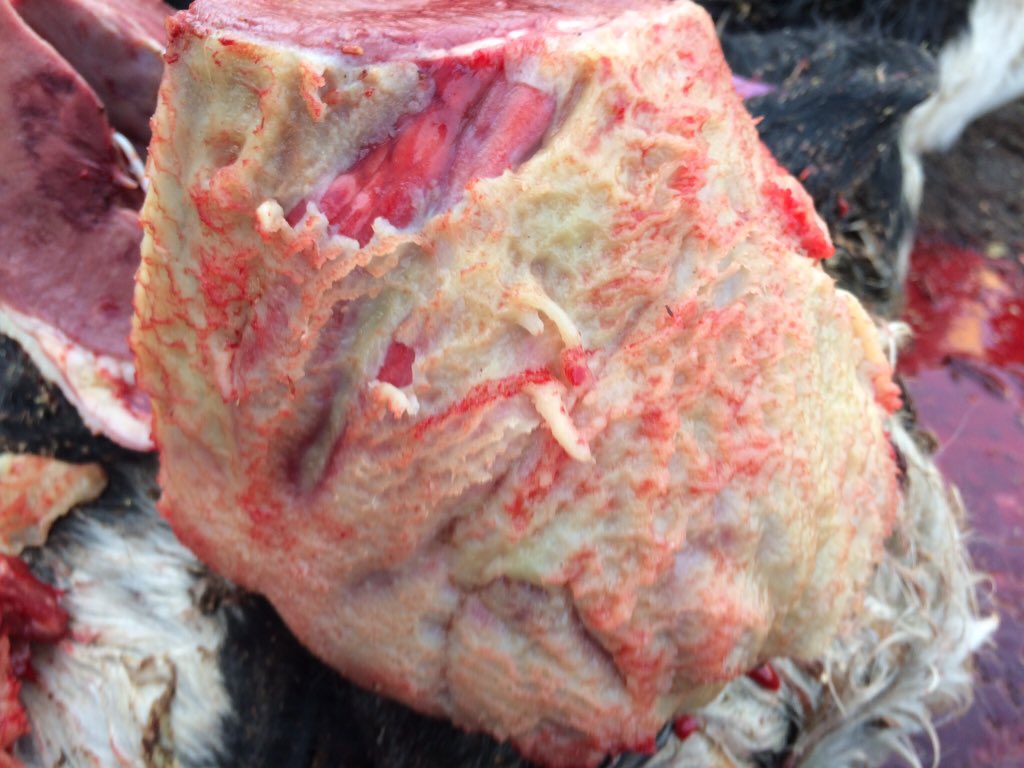










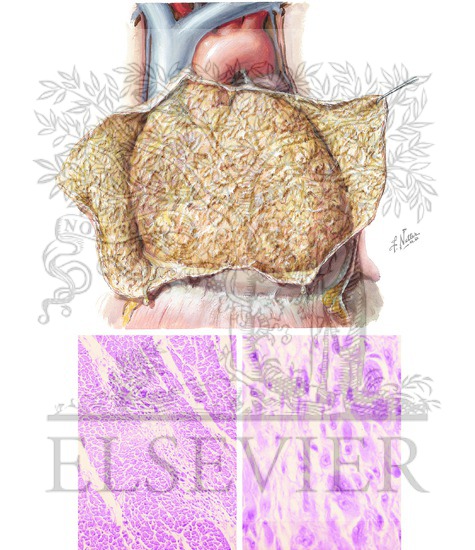
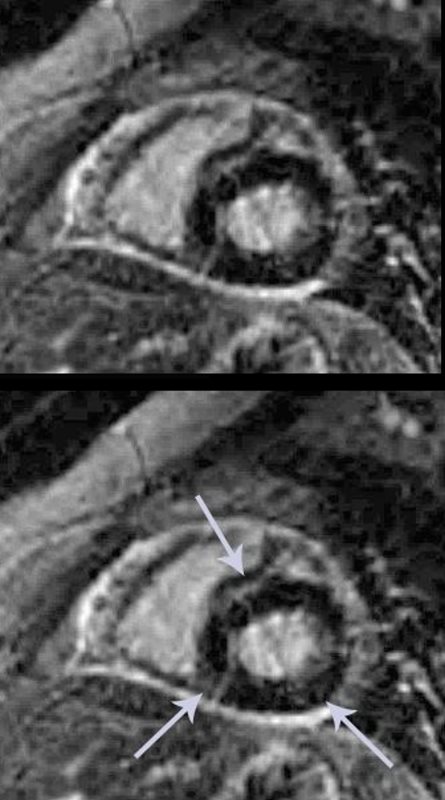





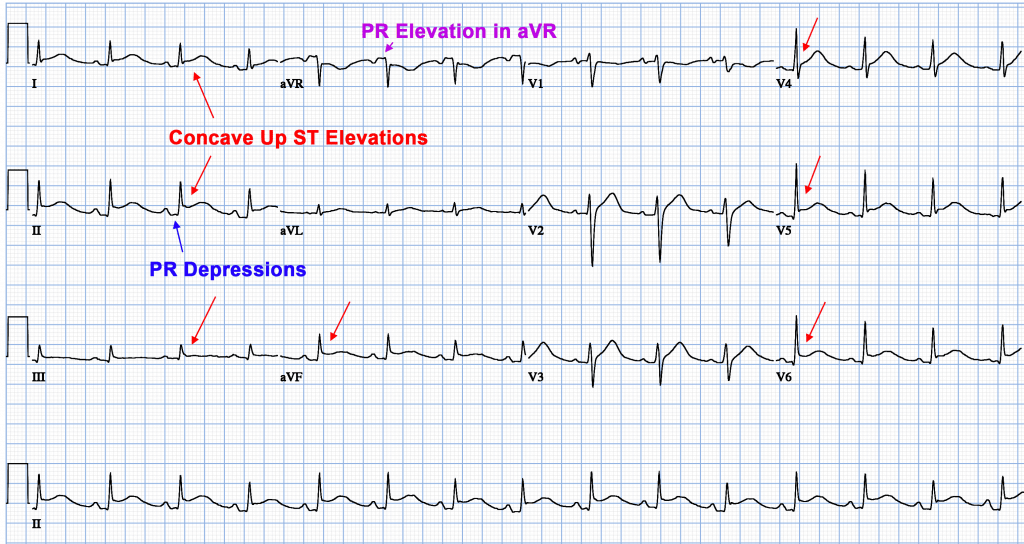


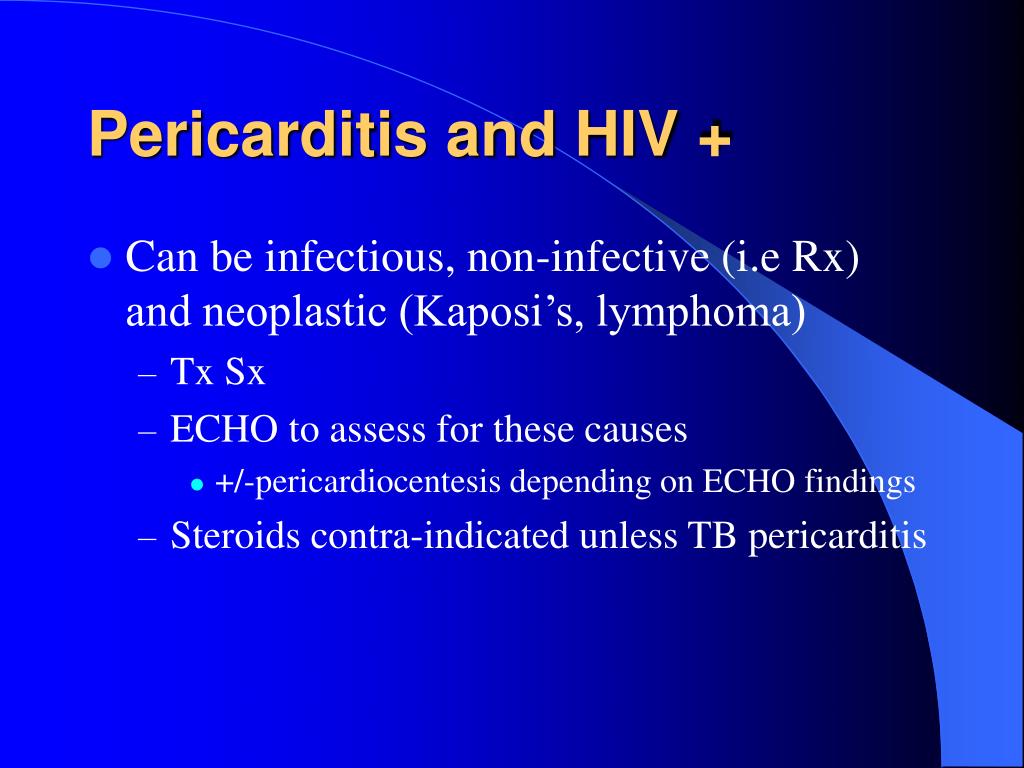


No comments:
Post a Comment
Note: Only a member of this blog may post a comment.